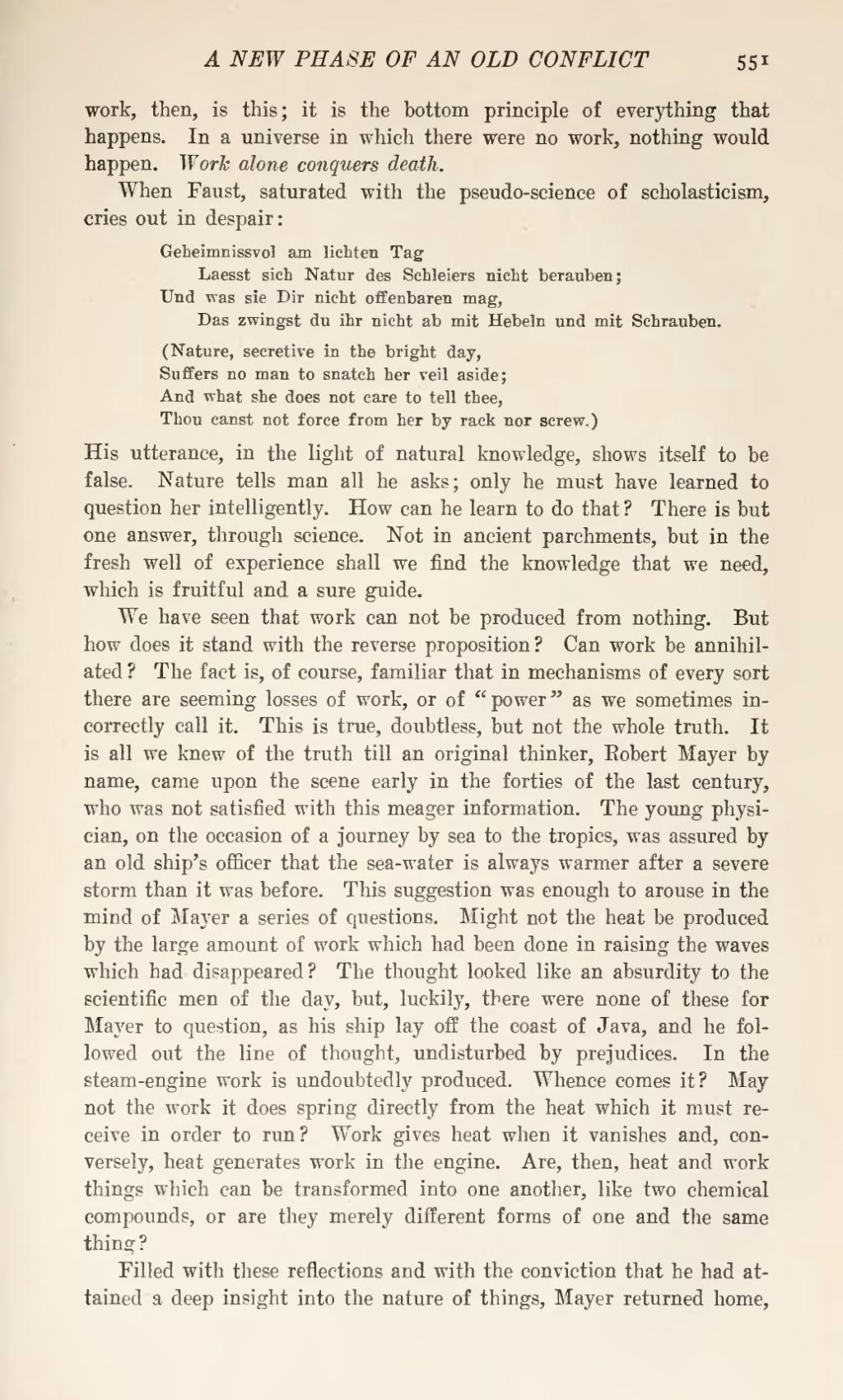work, then, is this; it is the bottom principle of everything that happens. In a universe in which there were no work, nothing would happen. Work alone conquers death.
When Faust, saturated with the pseudo-science of scholasticism, cries out in despair:
Geheimnissvol am lichten Tag
Laesst sieh Natur des Schleiers nicht berauben;
Und was sie Dir nicht offenbaren mag,
Das zwingst du ihr nicht ab mit Hebeln und mit Schrauben.
(Nature, secretive in the bright day,
Suffers no man to snatch her veil aside;
And what she does not care to tell thee,
Thou canst not force from her by rack nor screw.)
His utterance, in the light of natural knowledge, shows itself to be false. Nature tells man all he asks; only he must have learned to question her intelligently. How can he learn to do that? There is but one answer, through science. Not in ancient parchments, but in the fresh well of experience shall we find the knowledge that we need, which is fruitful and a sure guide.
We have seen that work can not be produced from nothing. But how does it stand with the reverse proposition? Can work be annihilated? The fact is, of course, familiar that in mechanisms of every sort there are seeming losses of work, or of "power" as we sometimes incorrectly call it. This is true, doubtless, but not the whole truth. It is all we knew of the truth till an original thinker, Robert Mayer by name, came upon the scene early in the forties of the last century, who was not satisfied with this meager information. The young physician, on the occasion of a journey by sea to the tropics, was assured by an old ship's officer that the sea-water is always warmer after a severe storm than it was before. This suggestion was enough to arouse in the mind of Mayer a series of questions. Might not the heat be produced by the large amount of work which had been done in raising the waves which had disappeared? The thought looked like an absurdity to the scientific men of the day, but, luckily, there were none of these for Mayer to question, as his ship lay off the coast of Java, and he followed out the line of thought, undisturbed by prejudices. In the steam-engine work is undoubtedly produced. Whence comes it? May not the work it does spring directly from the heat which it must receive in order to run? Work gives heat when it vanishes and, conversely, heat generates work in the engine. Are, then, heat and work things which can be transformed into one another, like two chemical compounds, or are they merely different forms of one and the same thing?
Filled with these reflections and with the conviction that he had attained a deep insight into the nature of things, Mayer returned home,

